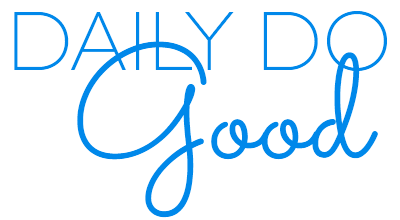TRANSFORMED BY HOPE
Alanda Braxton-Miles was sick.
She was swollen and tired. She was gaining weight. Her hair was falling out.
Her physician wasn’t looking hard enough for answers. She was tired of visiting the emergency room. So she went to Community of Hope’s Conway Health and Resource Center.
“My doctor took time to listen,” she said. “She’s loving and caring. I know she’s busy, but she treats every patient like they’re her only one!”
Finally, Alanda got her diagnosis: Diabetes. And after receiving the proper treatment to manage her condition, most of the symptoms have disappeared.
"I've had a physical transformation,” she said, “from the crown of my head to the soles of my feet."
“To be able to see the impact our services have on people,” said Community of Hope development and marketing manager Karis Erwin, “that was a really special day.”
Since 1980, Community of Hope has been working to help low-income families in DC find stability, in the forms of home, health and income.
“Many times people who come to us for help don’t need support in just one area, but wrap around services that touch multiple parts of their life,” Karis said.
A pediatric exam at Conway Health Center/Photo courtesy of Community of Hope
Health services are available to anyone, regardless of ability to pay.
Three facilities, in Bellevue, Carver-Langston and Adams Morgan, provide medical, dental and behavioral health services for men, women and children.
“There are significant challenges to health care,” said Karis. “There’s a higher infant mortality rate, increased deaths from diabetes and AIDS, need for increased access to primary medical care, dental care and behavioral health support in Wards 5,6,7 and 8.”
HOPE AND INDEPENDENCE
About 80 percent of Community of Hope’s housing clients live in Wards 7 and 8, which have the highest unemployment rates in the city. As of Jan., 2015, the unemployment rates in Wards 7 and 8 were 13.1 and 16.2 respectively, according to the District of Columbia Department of Employment Services.
“These are individuals we’re really trying to target to work with them on job skills, helping them access benefits, and find the resources they need to find and keep jobs,” she noted.
A Community of Hope housing client shows off her space/Photo courtesy of Community of Hope
The housing component of Community of Hope ranges from rapid re-housing – families and individuals who need a few months of help to get on their feet – to permanent supportive housing, which consists of having a lease in ones own name and paying up to 30 percent of rent from income.
Housing clients are referred by the Virginia Williams Family Resource Center.
Monique Walls lives in one of COH’s Rapid Re-Housing apartments with her 3-year-old son.
After being laid off from a position she’d held for 14 years, Monique could no longer pay rent, and was eventually evicted. The DC General Shelter was an unhealthy environment for her child, who had heart problems as a baby.
The two spent 11 months in a motel before finding Community of Hope. Now, Monique and her son not only have a safe place to live, she has support. Monique is actively searching for employment.
“It’s programs like Community of Hope that make me feel hope – for myself and others like me," she said. "It’s giving me an opportunity to gain my independence back. I needed help and Community of Hope has just been such a blessing.”
WORKING FOR HOPE
Community of Hope's in-house workforce development program allows clients to work with employment specialists who help them with resumes, job leads and interview techniques.
A soft-skills development program focused on customer service is available to COH clients. Here, they learn not just how to get a job, but how to keep one. Topics include how to accept feedback from supervisors, avoiding co-worker conflicts, and how to deal with difficult customers, valuable skills, indeed, for nearly every working person.
After completing the six-week program, David Mitchell landed a job as a wheelchair escort at Dulles Airport, a great relief for the 31-year-old, who had been unemployed for three years.
Through Community of Hope, David learned the confidence and poise required to make an interview turn into a job.
“Community of Hope saw something in me,” he said. "I found it, and now I’ve been working for six months. I’m going to be proud to do my taxes this year.”
Workforce Development class/Photo courtesy of Community of Hope
COH has a dedicated and motivated staff, from the doctors and nurses who staff the health centers to CEO Kelly Sweeney McShane who, on March 24, was named one of eight Women of Excellence by Mayor Muriel Bowser, The Office on Women's Policy & Initiatives and the DC Commission for Women.
Like most nonprofit organizations, however, Community of Hope relies on loving and dedicated volunteers and mentors, people like Ellie Matthews.
For the past four years, Ellie has been a mentor with COH. She's been working with her current mentee, an elementary school girl, for two years. They spend their time together experiencing many of DC's cultural opportunities -- the National Zoo, or an Italian Christmas celebration at the Portrait Gallery, to name a few.
"I've been able to see her grow up," Ellie said of the child. "I enjoy the activities we do together. I can impart knowledge, and she teaches me things in a different way."
Despite any challenges she and her colleagues face in their work, Karis Erwin said the opportunity to see hope coming to fruition keeps her going.
“I’ve seen the lives that have been impacted and the lives that have been changed,” she said. “That’s motivation enough for me.”
Editor’s note: Sections in italics are based on stories sent to The Daily Do Good via e-mail by Community of Hope.




